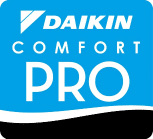
As homeowners increasingly look for energy-efficient alternatives for home heating and cooling, heat pumps have emerged as a highly popular and effective solution. These versatile systems transfer heat between the indoor and outdoor environments, providing heating in the winter and cooling during the summer months. By investing in a heat pump from Total Home Services Utah, homeowners can enjoy consistent indoor comfort throughout the year and significant energy savings compared to traditional HVAC systems.
Benefits of Heat Pumps
There are several advantages to using heat pumps for heating and cooling your home. Some of the key benefits include:
- Energy efficiency: Heat pumps are highly energy-efficient as they transfer heat rather than generate it, resulting in significantly lower energy consumption compared to conventional heating and cooling systems.
- Versatility: Heat pumps can provide both heating and cooling functions, making them an all-in-one solution for maintaining year-round indoor comfort.
- Environmental-friendliness: Heat pumps produce fewer greenhouse gas emissions and use less electricity, reducing their environmental impact.
- Quiet operation: Heat pumps operate quietly compared to traditional furnaces and air conditioners, providing a more peaceful and comfortable living environment.
Considering these benefits, it's easy to see why heat pumps have become an increasingly popular choice for many homeowners.
Types of Heat Pumps
Various types of heat pumps are available in the market, each with unique features and functions. The most common types include:
- Air-source heat pumps: Air-source heat pumps extract heat from the outdoor air during the heating season and release it indoors. Conversely, they remove heat from indoor air during the cooling season and transfer it outdoors.
- Ground-source (geothermal) heat pumps: Ground-source heat pumps utilize the ground's stable temperature or a water source to exchange heat between your home and the earth.
- Absorption heat pumps: Absorption heat pumps function similarly to air-source heat pumps but use a different heat source like natural gas, propane, or solar energy for heat absorption.
Understanding the different types of heat pumps and their functionalities can help you select the most suitable option for your specific needs and preferences.
Selecting the Right Heat Pump
When choosing a heat pump for your home, there are several key factors you should consider to ensure optimal performance and efficiency:
- Home size and climate: Assess your home's size, insulation levels, and climate in your region to determine the most appropriate heat pump for your specific needs.
- Energy requirements: Consider your household's typical energy consumption patterns and requirements, as well as the efficiency rating (HSPF or COP) of the heat pump you're considering.
- Capacity: Ensure that the heat pump's capacity aligns with your home's heating and cooling load requirements to prevent over- or under-sizing.
- Additional features: Look for advanced heat pump features such as variable speed compressors, programmable thermostats, or integration with smart home systems to enhance overall comfort and energy efficiency.
By considering these factors, you can select the ideal heat pump system that delivers the highest level of performance and efficiency for your home.
Heat Pump Maintenance Essentials
Proper maintenance is crucial for ensuring your heat pump's efficient and reliable operation. Essential heat pump maintenance practices include:
- Cleaning filters: Regularly clean or replace your heat pump's filters (every 1-3 months) to maintain optimal airflow and energy efficiency.
- Inspecting refrigerant levels: Check your heat pump's refrigerant level at least once per year and address any leaks or discrepancies to prevent performance issues or damage to the system.
- Checking electrical components: Regularly inspect electrical connections and components to ensure they're securely fastened and functioning correctly.
- Professional maintenance: Schedule annual professional maintenance for a comprehensive system checkup, including cleaning coils, checking safety controls, and assessing overall system performance.
By adhering to these maintenance practices, you can prolong the lifespan of your heat pump and prevent potential problems from escalating, ensuring consistent heating and cooling performance in your home.
Conclusion
Heat pumps have become an increasingly popular choice for homeowners in search of versatile and energy-efficient home heating and cooling solutions. By understanding the numerous benefits of heat pumps, the different types available, and the crucial factors to consider when selecting a heat pump, you can make an informed decision on the best system for your needs. Additionally, adhering to essential heat pump maintenance practices can help guarantee optimal performance, energy efficiency, and a long-lasting system. Let our team of experienced professionals at Total Home Services of Utah assist you in navigating the intricacies of heat pumps, from installation and system selection to maintenance and repair services, so you can enjoy the year-round comfort and coziness your home deserves.




